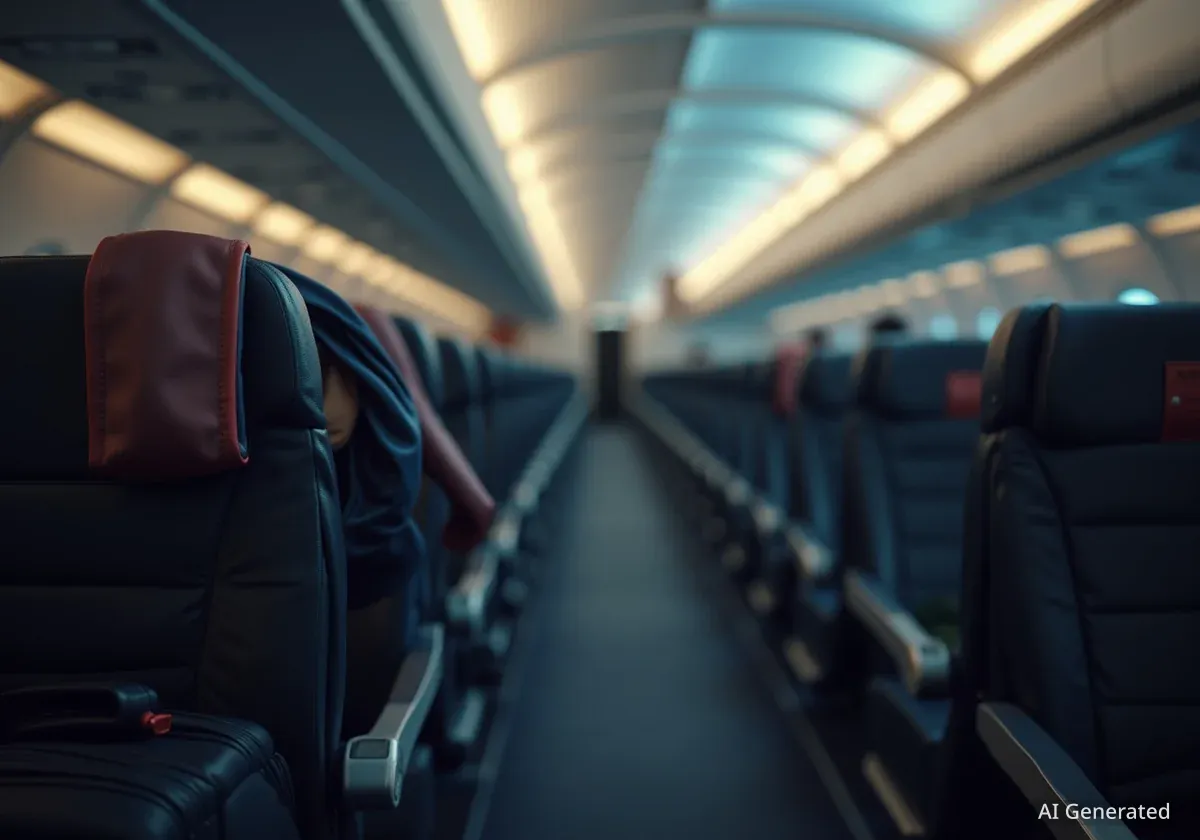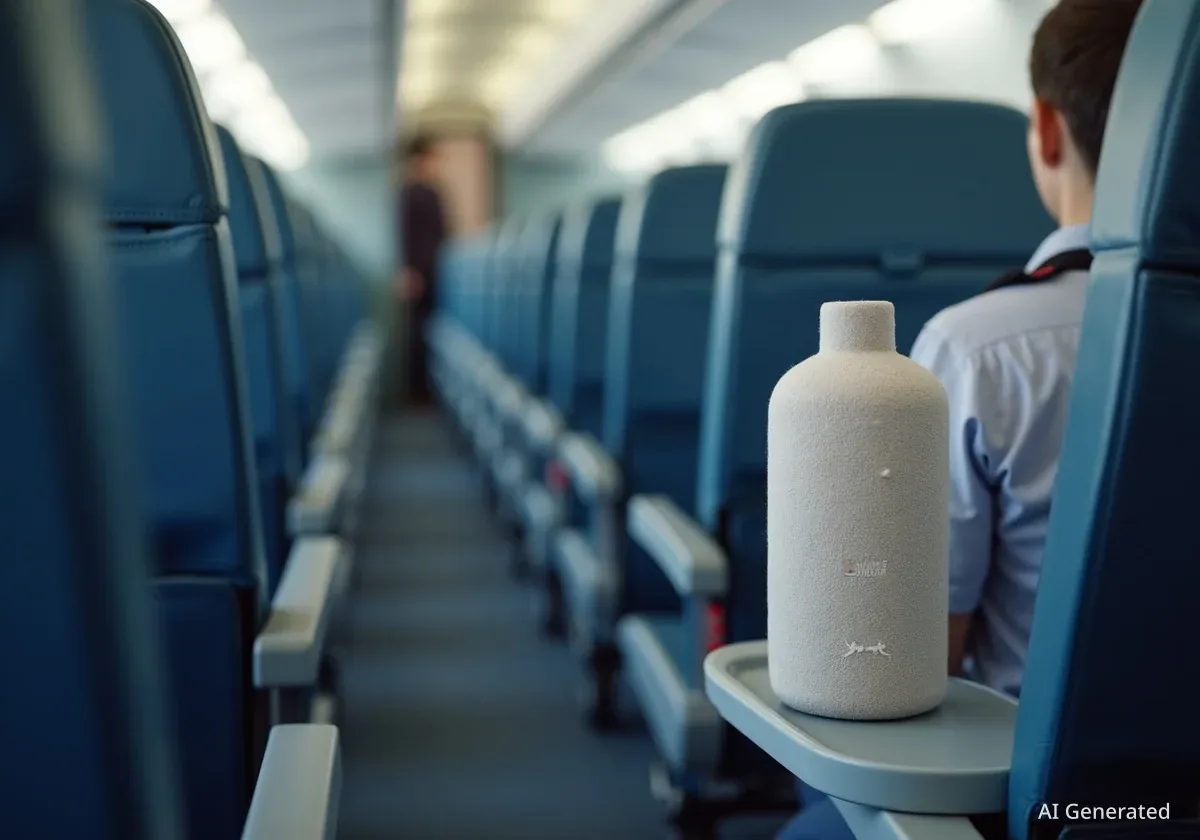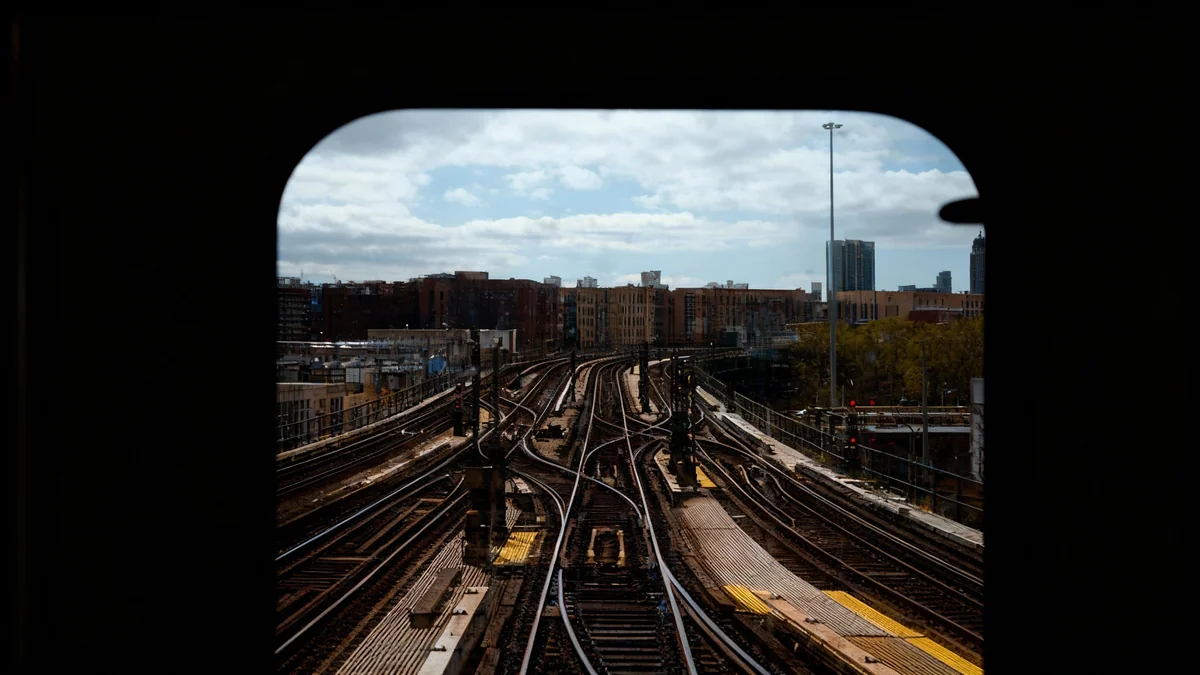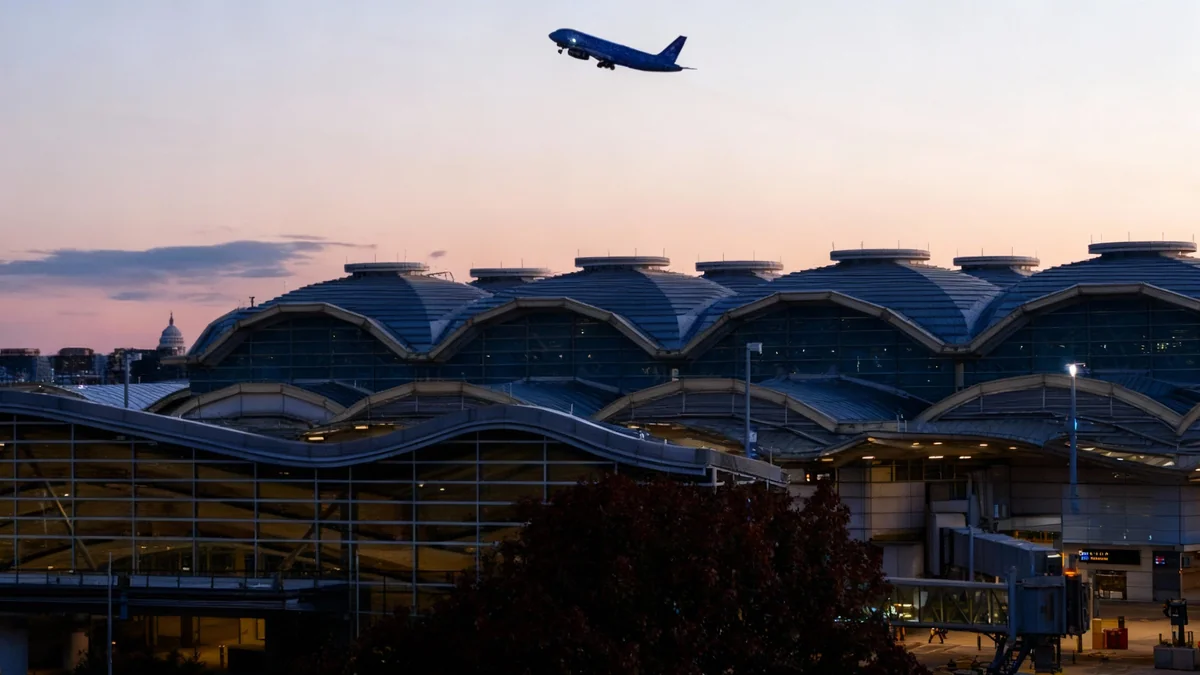United Airlines faces a class-action lawsuit from flight attendants alleging that the company has not paid them for all mandatory work hours. The lawsuit, filed in New Jersey, claims that flight attendants have been compensated only for "actual" flight time, excluding crucial on-the-ground duties like reporting for work, pre-flight checks, boarding, deplaning, and time spent between flights while in uniform. This legal challenge highlights a long-standing practice in the airline industry and could have significant financial implications for United and other carriers.
Key Takeaways
- United Airlines is being sued by flight attendants for unpaid work hours.
- The lawsuit claims flight attendants are not paid for pre-flight, boarding, deplaning, and ground time.
- This practice has been standard in the airline industry for decades, but state laws are challenging it.
- The case seeks unpaid wages, overtime, and significant damages under New Jersey law.
- Other airlines have recently begun paying for boarding time due to union pressure and competitive factors.
Lawsuit Challenges Long-Standing Industry Pay Practices
The lawsuit, filed on September 15, 2025, by a Newark-based flight attendant, seeks class action status. The plaintiff worked for United from July 2023 to July 2025. The core of the claim is that United violates New Jersey wage law by only paying cabin crew for "block-out to door-open" time. This means flight attendants are not compensated for significant periods they are required to be on duty.
New Jersey state law explicitly states that "all the time the employee is required to be at his or her place of work or on duty shall be counted as hours worked." This legal definition forms the basis of the flight attendants' claim. The suit demands unpaid wages, overtime compensation, up to 200% in liquidated damages, legal fees, and injunctive relief.
Fact: New Jersey Wage Theft Act
New Jersey's Wage Theft Act, enacted in 2019, expanded remedies for employees. It allows a six-year look-back period for unpaid wages and permits up to 200% in liquidated damages for violations occurring after August 6, 2019.
Historical Pay Structures and Recent Shifts
For nearly 80 years, U.S. airlines have primarily paid flight crews based on "block time." This system credits some non-flying time through complex contractual "rigs." United's first flight attendant contract in 1946 established duty hour limits, rest periods, and a cap of 85 flight hours per month. Bureau of Labor Statistics surveys from the 1970s show similar crediting formulas for non-flying duties, which led to higher base flight-hour rates compared to typical hourly wages.
"Unions negotiated this formula because it benefits senior crew at the expense of junior crew."
According to industry analysis, this traditional pay model often favors senior flight attendants who tend to work fewer, longer flights, allowing them to earn more. Junior flight attendants, who often work more short flights, may earn less under this system. Union bargaining has historically focused on maximizing benefits for the overall employee group and distributing those benefits among members.
Evolution of Boarding Pay
The industry's long-standing equilibrium began to shift in 2022 when non-union Delta Air Lines started paying flight attendants for boarding time at half their hourly rates. This move created pressure on unionized airlines. While unions had previously sought boarding pay, it was often treated as an optional add-on rather than a core negotiation point.
However, once Delta implemented boarding pay, flight attendants at other airlines increasingly demanded similar compensation. American Airlines added boarding pay to its collective bargaining agreement, effective April 1, 2025, becoming the first unionized flight attendant group to secure it. Alaska Airlines followed suit. United and the Association of Flight Attendants-CWA (AFA-CWA) had also agreed to boarding pay in a tentative agreement in 2025, but union members rejected that deal in July.
Context: Union Negotiations
The AFA-CWA had advocated for full 'ground pay' during negotiations but did not secure this in the final tentative agreement that members ultimately voted against. This highlights the ongoing tension between traditional pay models and evolving worker expectations.
Legal Challenges and Preemption Arguments
United Airlines is expected to argue that these claims should be resolved through Railway Labor Act arbitration, contending that they require interpretation of the Collective Bargaining Agreement (CBA). CBAs cover reporting rules, credit systems, and other pay-related details.
However, the Supreme Court's ruling in Hawaiian Airlines v. Norris suggests a distinction: state-law wage claims based on independent rights, such as "hours worked" laws, are not automatically preempted just because a union contract exists. Only claims that necessitate interpreting the specific terms of the contract are channeled to arbitration. In this case, the plaintiff's claim is straightforward: they were on duty and not paid for that time, which may not require complex contract interpretation.
Airlines have also largely been unsuccessful in using Airline Deregulation Act preemption against state wage laws that do not directly regulate the airline-customer relationship. The Ninth Circuit Court of Appeals, for example, upheld Washington's paid sick leave law and allowed California wage laws to apply to flight crews. While these decisions are not binding in the Third Circuit (where New Jersey is located), they indicate a trend toward general state wage laws surviving preemption challenges.
- Potential Damages: If the class action is certified for Newark-based flight attendants (current and former), damages could include:
- Unpaid straight-time for all uncompensated New Jersey "hours worked" (report, boarding, deplaning, ground duties, sits).
- Overtime for any workweeks exceeding 40 hours when all duties are counted.
- Up to 200% liquidated damages, legal fees, and interest.
Wider Implications for the Airline Industry
This lawsuit against United Airlines is not an isolated event. Similar legal challenges are emerging across the country. California, known for its strong labor laws, has seen successful claims over wage statements and meal and rest times for flight crews, with these challenges surviving appeals. It is likely that similar lawsuits regarding unpaid ground time will follow for flight attendant bases in California.
Washington State, which has similar "hours worked" rules to New Jersey, has already applied its sick leave law to flight crews. Furthermore, multiple lawsuits are pending in Colorado concerning unpaid ground and boarding time. New York and Illinois also have wage laws that could pose risks to airlines operating under traditional pay structures.
State Wage Law Landscape
Several states, including New Jersey, California, Washington, Colorado, New York, and Illinois, have robust wage and hour laws that could impact how airlines compensate their flight attendants for on-the-ground duties.
Reasons for the Surge in Lawsuits
Several factors explain why such lawsuits are becoming more common now:
- Favorable Court Rulings: The last six years have produced plaintiff-friendly decisions in aviation wage cases in California and Washington, which have been affirmed by the Ninth Circuit. This makes future cases more viable.
- Enhanced Remedies: New Jersey's 2019 Wage Theft Act significantly expanded remedies and the look-back period to six years, making these cases more financially appealing for plaintiffs.
- Industry Shift: Delta Air Lines' decision in 2022 to unilaterally add boarding pay disrupted the industry norm. This move made it harder for other airlines to argue that not paying for boarding time was a universal industry practice. It also strengthens the argument that boarding and other ground duties are compensable work.
While airlines might argue they have acted in good faith by paying what was negotiated in union contracts, state laws like New Jersey's often do not consider industry custom as a defense against explicit wage requirements.
Call for a Federal Solution
From a policy perspective, the current patchwork of state wage laws creates complexity for an industry that operates nationally. Airlines are national networks, and most flights cross state lines. Flight crews typically work under union contracts designed with higher block-time rates, precisely because they do not clock in and out in the conventional manner.
These contracts are negotiated by elected union representatives with the aim of benefiting flight attendants, ensuring that pay is above minimum wage. However, applying state-specific overtime rules, where overtime is calculated at 1.5 times actual wages, could significantly increase airline liability, especially for ground time that was previously considered part of the higher block-time rate.
Many industry observers suggest that Congress could resolve this issue by clarifying that state wage-and-hour rules are preempted for airline flight crews. This would create a uniform federal standard and prevent a complex, state-by-state regulatory environment that could disrupt airline operations and compensation structures.





